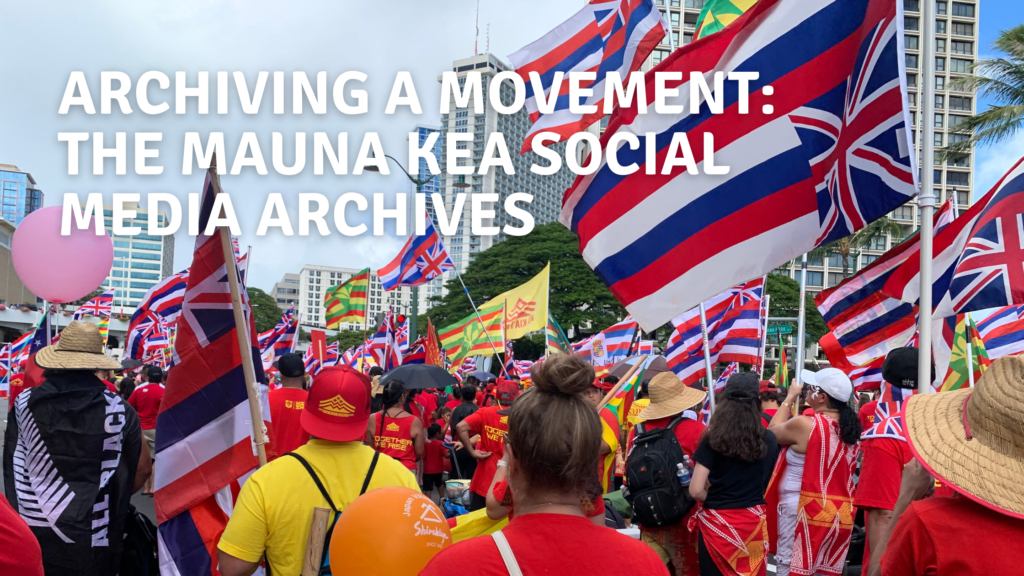
Wednesday, October 14, 2020
5:30-6:30 pm
In the summer of 2019, a historic standoff between law enforcement and kupuna on Mauna Kea spurred the Ku Kiai Mauna movement, garnering international attention. Compelled by the moment, three Hawaii librarians began to compile a digital repository of social media posts capturing Mauna Kea-related events. Join Shavonn Matsuda, Kawena Komeiji, and Alphie Garcia, founders of the Mauna Kea Social Media Archives, as they reflect on the intersection of archives, media, native knowledge, and the law, and learn where the project stands today.
Shavonn Matsuda is a librarian at the University of Hawaii Maui College. She is pursuing a PhD in Indigenous Studies from Te Whare Wananga o Awanuiarangi. Her research is focused on Indigenous knowledge organization and pathways to improve access to Hawaiian knowledge in libraries and archives. Recently, her work has focused on the creation of a Hawaiian controlled vocabulary, as part of an IMLS-funded project titled, Lau A Lau Ka Ike: Knowledge Overflowing.
Kawena Komeiji is from Nuuanu, Kona, Oahu and serves as the Hawaii-Pacific Resources Librarian at the James and Abigail Kuaihelani Campbell Library (University of Hawaii – West Oahu). One of her professional goals is creating better pathways to access the ike held in Hawaiian language primary documents. Kawena has a Bachelor’s degree in Hawaiian Studies and a Master’s in library science from the University of Hawaii at Manoa.
Alphie Garcia has served as the Information Resources and Collection Management Librarian at the James and Abigail Kuaihelani Campbell Library (University of Hawaii – West Oahu) since 2013. His latest professional interests include improving patron experience, maximizing library resource usage, and digital archives.
